The astonishingly good gardens at Veddw created by Anne Wareham and Charles Hawes.
Yes, Jinny Blom wrote that.
Two things I read recently on Substack have inspired this risky, heart in mouth post.
One was by Tom Cox:
Well, I’m not about to be famous, but that hit a spot.
The garden at Veddw would be famous if I had ever become famous: that’s what happens. Some of our major gardens came to attention because their maker made their own name big first. But I’m not famous.
Then today, India Knight, in her latest must read post on ‘Home’ said
“I used to think self-deprecation was funny. Now it appalls me. I hate it when it’s a transparent attempted deflection from entitlement and privilege….. I think it has to do with the paralysing fear of ever being seen to be pleased with yourself. Or of showing off. In Britain, showing off is one up from taking a crap on the floor.”
So here I am, one up from that crap on the floor.
We’ll be opening the garden in June for many afternoons over the summer and my birthday yesterday reminded me that although we are not ever leaving here, this garden may not be open forever.
I think it is an important garden.
It has been made from scratch by two people with complementary skills and preoccupations: Charles is the doer, who has dedication and a very good eye. He has done much of the heavy work in creating this garden (Though I have done my bit) and has, with courage, cut through many of his own preoccupations to embrace mine. His responsiveness and enthusiasm has helped me realise mad idea after mad idea. And it has always cost a lot ££££££.
The garden is unconventional, unusual.
It is my homage to our unknown and previously unrecognised predecessors and always, over and over, my love of this land. It has enabled me to express this love in ways that words fail.
It is, of course, full of plants. I love plants, as most good gardeners do, but not to the point of creating a collection, remembering always the great Gertrude Jekyll -
"The possession of a quantity of plants, however good the plants may be themselves and however ample their number, does not make a garden; it only makes a collection. Having got the plants, the great thing is to use them with careful selection and definite intention."
I have tried hard to excel. This is deeply unfashionable in some quarters. I once had an argument on Woman’s Hour with Lia Leendertz about whether we should encourage people to try to do better. (rather than praise whatever garden someone well meaningly produces). This is not just about working hard in the garden, it’s about getting rid of what doesn’t work, asking for and acting on criticism, and always trying to do better.
I think we are worth a visit and we love to meet and talk with people who can love a garden - and the best of those are often not gardeners themselves.
Above all, I hope that the garden is beautiful.
And should you decide to visit, here’s our website - https://veddw.com/
__________________________________________________________________________
Some appreciations besides Jinny Blom’s:
Stephen Anderton in The Times
“This garden combines all the achievements of a great garden - excellent relationships between house and garden and between the garden and its surroundings, a satisfying blend of formality and informality and of wildness and control, good use of colour and texture, and a distinct personality."
Chris Young in The Garden
“Plenty of interest, some sublime design touches, and is a place being constantly refined and improved.”
CountryFile
“One of the Top Ten Artistic Landscapes in Britain”
Alan Titchmarsh's pick of the Top Ten British gardens
A quirky garden created by self-confessed 'Bad-Tempered Gardener' Anne Wareham. The hedges alone are worth a visit, and there is much to learn about the use of plants in this Welsh garden. Quirky, fun and inspiring.
Noel Kingsbury, in Gardens Illustrated
This is a garden which is very ambitious; it is intellectual and experimental, occasionally provocative, but for the most part beautiful and relaxing.
Sara Maitland novelist, in Gardens of Illusion:
This is a very sophisticated approach to landscape; it acknowledges how much its history, including its previous owners, has shaped the land, and it honours that rather than trying to disguise it. It is a kind of thoughtful responsiveness which is, sadly, all too rare. Out of that response Anne Wareham is creating a garden …that is both original and deeply embedded in its specific location, and in the whole history of gardening itself.
Germaine Greer in the Guardian:
When, at Veddw in Monmouthshire, Wareham replants the lines of vanished hedgerows with box and fills the enclosed spaces with grasses and hardy perennials, she is linking the land-use of the past with the aesthetic of the lordly parterre. By giving expression to contemporary sensibility about conservation, she invites intellectual engagement. Gardening can be – should be – conceptual, which is simply a way of saying that gardens should have ideas in them and the ideas should be perceptible. As the late Ian Hamilton Finlay said, ” Superior gardens are composed of glooms and solitudes, not of plants and trees.”
Piet Oudolf:
Anne, I like your garden.

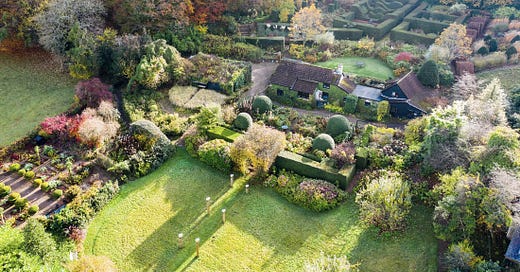




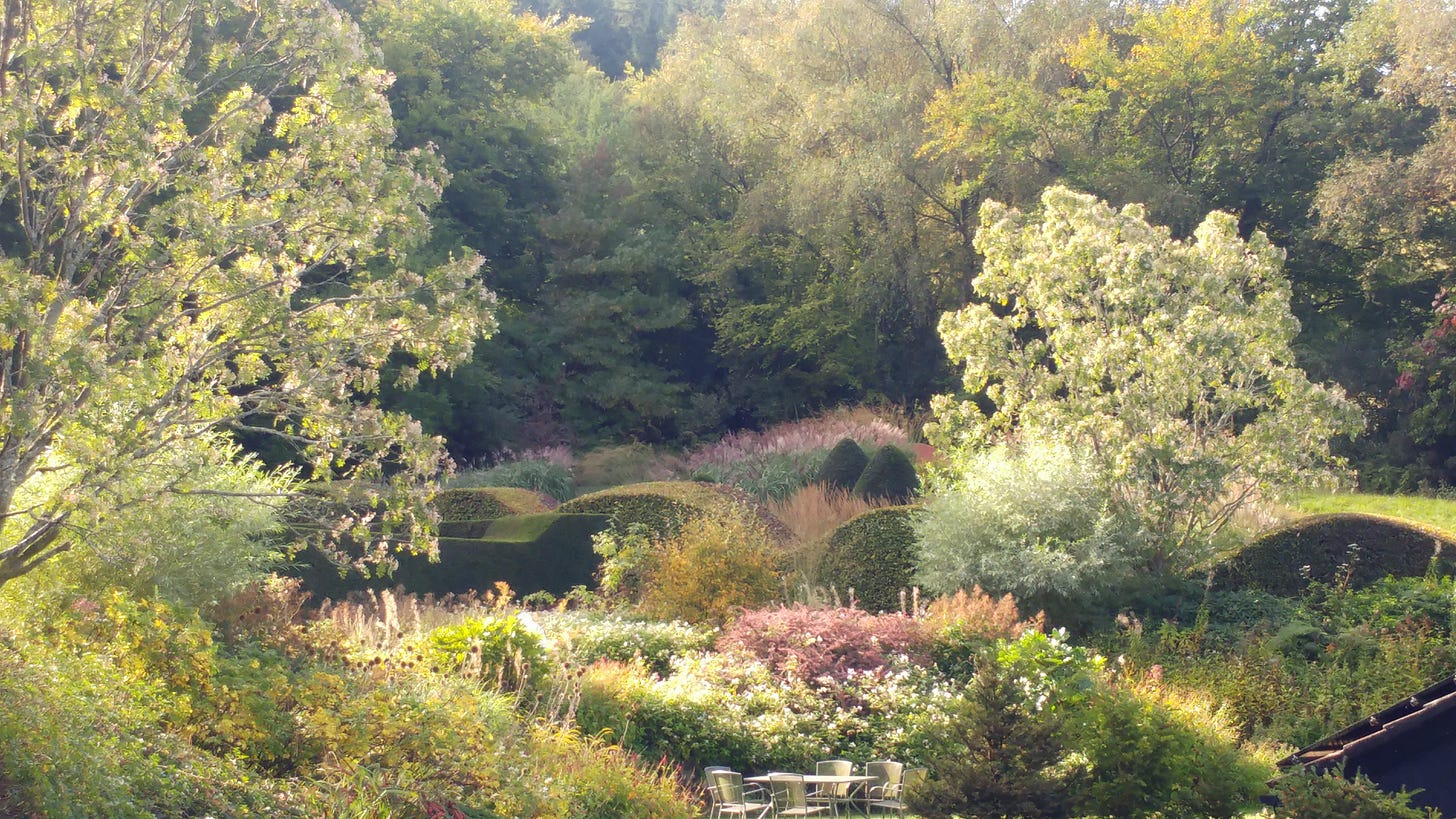

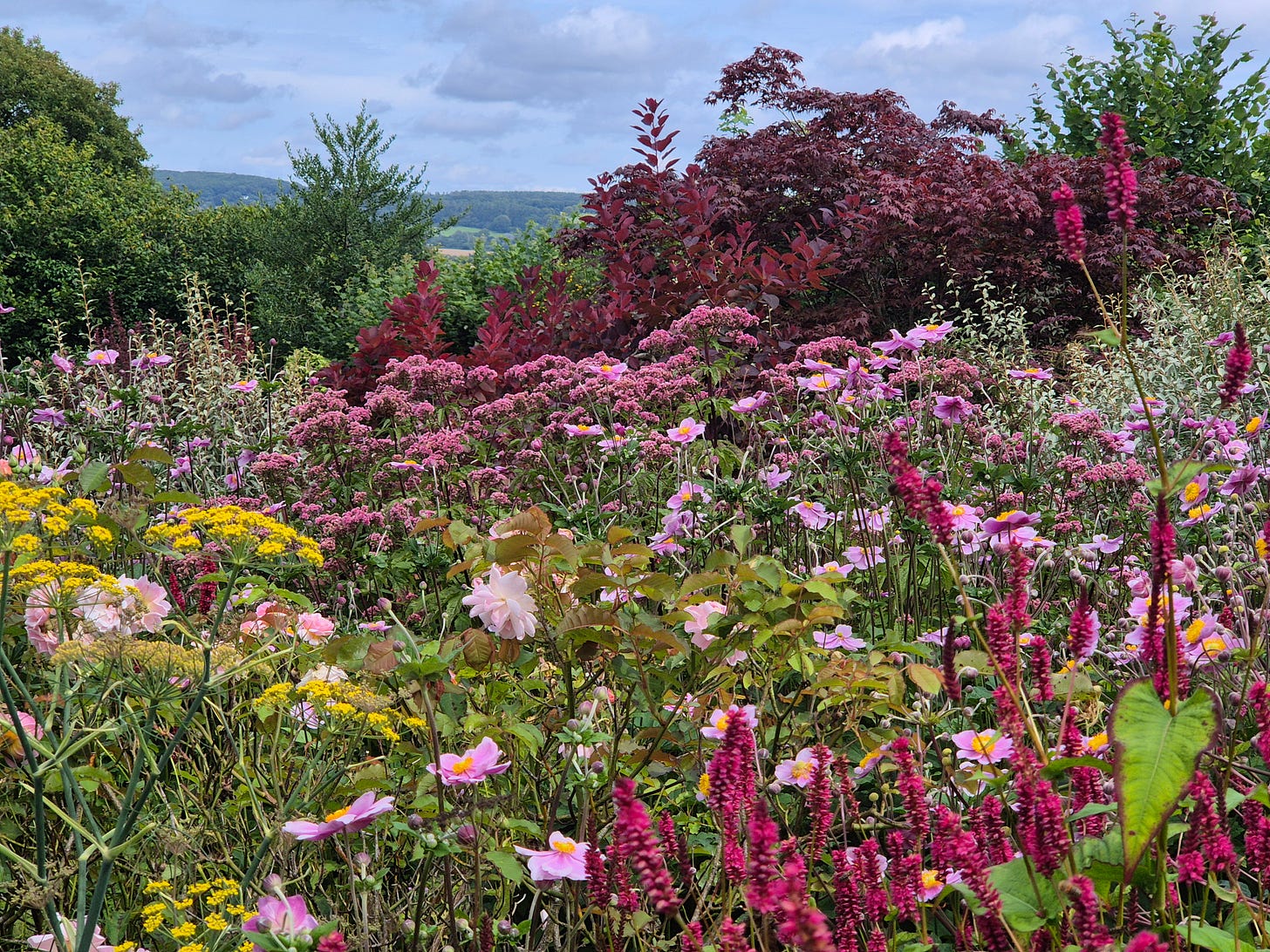
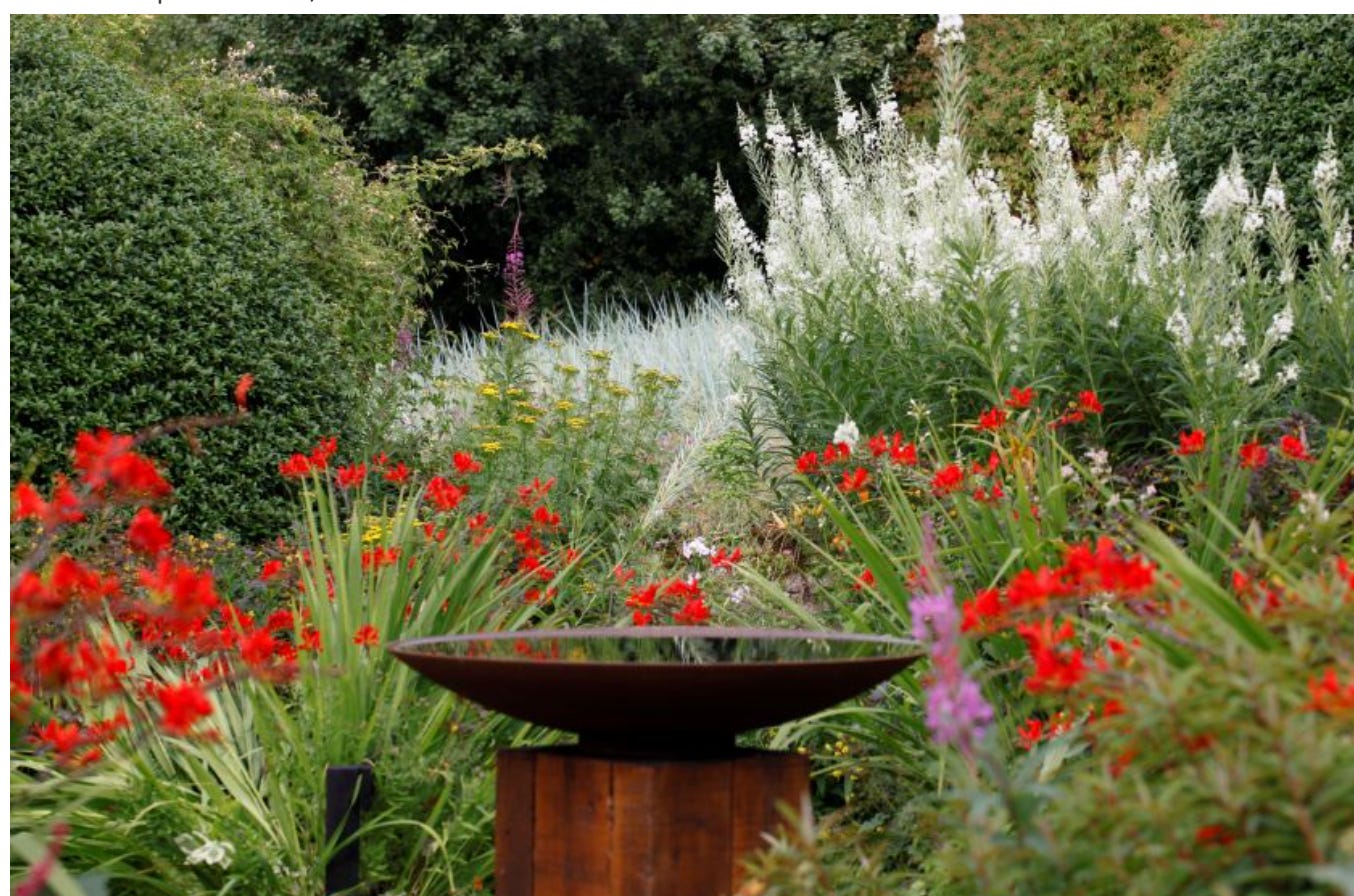
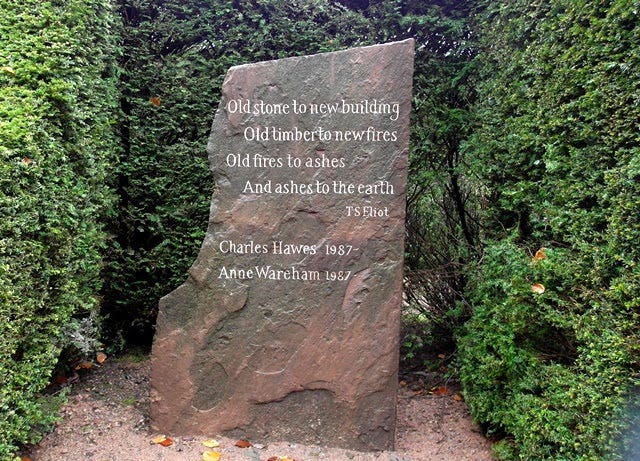
Important, unconventional, unusual. What you’ve made, how you write about it, is all those things and very inspirational as an expression of humanity. As India has set out so well, self depreciation is a dreadful thing, so false and so mimsy in its attention-seeking and its denial of the pleasure of showing off when one genuinely has something of real value and worth to show off. I’m delighted you see no reason to fall into its clutches, but rather place your work in its true context and note a call to the poignancy of passing years as part of that context. And, realist that I am, talk about cost (another subject where mimsy and coyness should have no place).
Look at what you and Charles have made, man, it’s really really good.
I would love to see your hard earned gardens, Anne, but mostly I would love to me such an interesting person! But, alas, I don't travel. So I am very thankful for all your posts and stories.